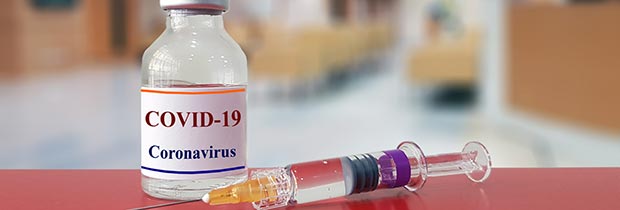Your weekly digest of policy news, funding competitions, and calls for evidence.
What’s been in the news?
European Commission looks at post-Covid-19 recovery
The European Commission has introduced the surveillance of imports of renewable ethanol (‘bioethanol’) having received reports of a significant increase in BioEO imports. The increase has come on the back of the economic impact from the Covid-19 pandemic. The Commission is tracking the volumes of the imported bioethanol to get a better understanding of the situation and the data will be made publicly available. The surveillance follows a request made by France on behalf of the bioethanol industry.
In further developments, the European Commission has welcomed the agreement between the European Parliament and the EU Member States in the Council on Europe’s next long-term budget and NextGenerationEU, the temporary recovery instrument. The €1.8 trillion package will be the largest ever financed through the EU budget, boosting Europe’s recovery for a greener, more digital and more resilient future.
European Commissioner Johannes Hahn, in charge of the budget, said: ‘Today's agreement will allow to reinforce specific programmes under the long-term budget for 2021-2027 (including Horizon Europe, Erasmus+, EU4Health).’
‘It will play an essential role to support the recovery and make sure traditional beneficiaries of EU funds receive the sufficient means to continue their work during these very challenging times for all.’
More than 50% of the package is reserved for supporting policies around research and innovation via Horizon Europe, as well as those around fair climate and digital transitions, preparedness and recovery and resilience.

UK government sets green ambitions
The UK government has announced a £22.5 million investment into five state-of-the-art research centres in London, Loughborough and Exeter to help tackle industry waste and boost recycling.
The research centres will explore how the reuse of waste materials in the textiles, construction, chemicals, transport, electronics and metal industries can protect the environment and boost the economy. Emissions from the UK’s textiles industry alone are almost as high as those from cars used for private trips, and it is estimated that £140 million worth of clothing goes into landfill each year.
Energy Minister Kwasi Kwarteng said:
‘We want to further the UK’s status as a world-leader in finding green solutions to industrial challenges, and projects like these are excellent examples of placing manufacturers at the forefront of the green industrial revolution.
I am pleased to support these new cutting-edge research centres that will transform the way industry reuses and recycles materials - another great step forward as we build back greener from coronavirus and achieve net zero emissions by 2050.’
In related news, the UK government has launched a new Green Jobs Taskforce that will create 2 million skilled jobs to enable the UK to reach net zero emissions by 2050, setting the direction for the job market during the transition to a high-skill, low carbon economy. This builds on the £200 billion support package to safeguard jobs in the UK.
The Green Jobs Taskforce is chaired by Energy Minister Kwasi Kwarteng and Skills Minister Gillian Keegan.
Apprenticeships and Skills Minister Gillian Keegan said:
‘It is now more critical than ever to make sure people get the skills they need to progress and that will help our economy to recover.’
The aims of the Taskforce include supporting workers in high carbon transitioning sectors, such as oil and gas, to retrain in new green technologies.
PM and life sciences companies discuss Covid-19 vaccine
Prime Minister Boris Johnson last week hosted a discussion with Bill Gates and the CEOs of life science and pharmaceutical companies on ending the pandemic and the prevention of future ones.
Companies present were: Bayer Pharmaceuticals, Boehringer Ingelheim, Bristol Myers Squibb, GSK, Johnson & Johnson, Merck, Novartis AG, Pfizer, Roche, and Sanofi. They re-committed to helping ensure equitable global access to any successful COVID-19 vaccine and called for investment in R&D and support for open supply chains and innovation.
Prime Minister Boris Johnson said:
‘I heard today about the herculean joint effort that life science companies and research institutions are undertaking to tackle this disease at record speed. The UK will use our G7 presidency next year to support this global endeavour and protect our citizens at home, now and in the future.‘
Bill & Melinda Gates Foundation Co-Chair, Bill Gates, said:
‘Every head of state is thinking about two questions right now: How can we end the current pandemic? And how can we prevent the next one? To answer those questions, the world needs a comprehensive strategy; a coherent approach to financing and manufacturing billions of doses of vaccines, tests and drugs; and a network to monitor for new threats.‘

Living online: the long-term impact on wellbeing
Evidence is sought after to understand the impact of the increasing reliance on digital technology, accelerated by the pandemic on social and economic wellbeing including physical and mental health.
Deadline: 11 December 2020
You can find further details of calls for evidence online here.
Reducing ammonia emissions from urea fertilisers
The government is seeking views on their plans to reduce ammonia emissions in England by regulating the use or sale of solid urea fertilisers.
Deadline: 26 January 2021
You can find further details of this inquiry on the DEFRA website
ISCF Future Plastic Packaging Solutions
UK registered businesses of any size can apply for a share of up to £2 million for early-stage projects in SSPP. Projects can last up to 18 months but must end by November 2022.
Deadline: 20 January 2021
Faraday Battery Challenge: Innovation R&D, Round 4
UK registered business can apply for a grant share of up to £10 million for feasibility and R&D projects that contribute to the innovation in electric vehicle battery technology.
Deadline: 9 December 2020
Faraday Battery Challenge: Innovation Feasibility Studies, Round 4
UK registered businesses can apply for a share of up to £10 million for innovation in electric vehicle battery technology.
Deadline: 9 December 2020
Long-term Covid-19 effects in non-hospitalised individuals
UK institutions and SMEs can apply for up to £20 million to fund two or three proposals to research into the causes, mechanisms and management of longer-term physical and mental health effects of Covid-19.
Deadline: 9 December 2020
SMEs transforming food production: series A investor partnership
UK registered SMEs that are transforming food production towards net zero can apply for a grant share of up to £5 million. Projects must last 18 months.
Deadline: 13 January 2021
UK and Canada biomanufacturing innovations in cell and gene therapies
A collaborative opportunity with the National Research Council of Canada for process improvement in biomanufacturing of gene and cell therapies. 75% project funding for costs up to £128,000 and projects must last up to 24 months.
Deadline: 23 December 2020
You can find further details of the funding calls on the Government website or via UKRI



